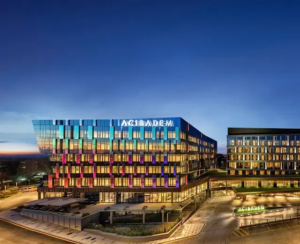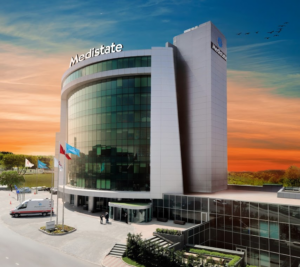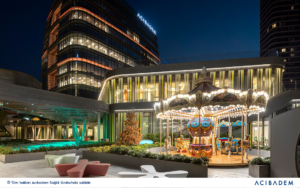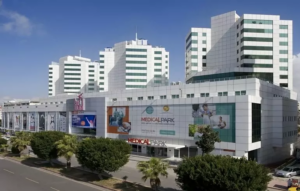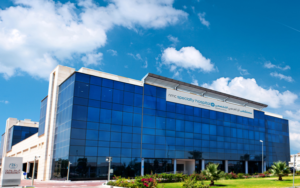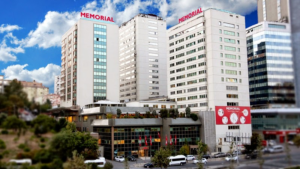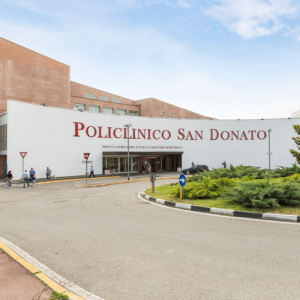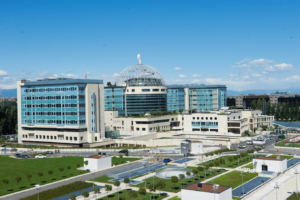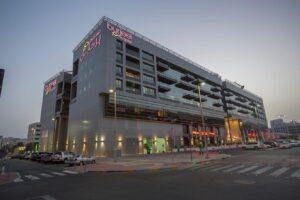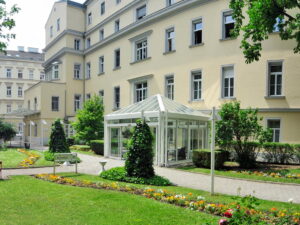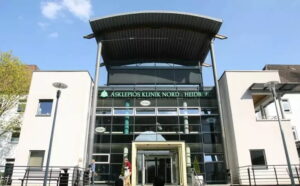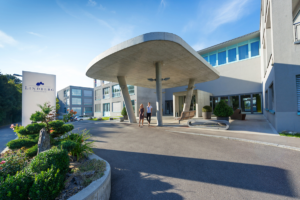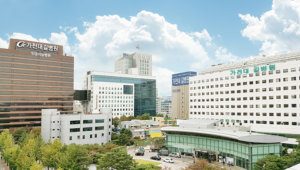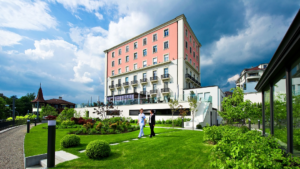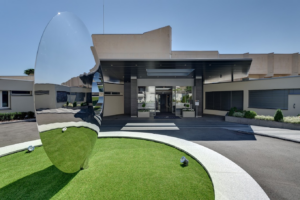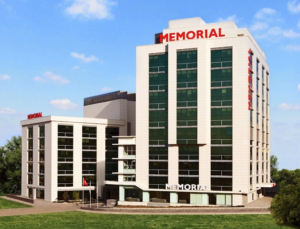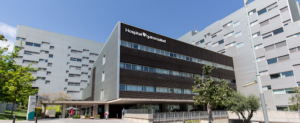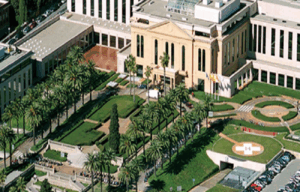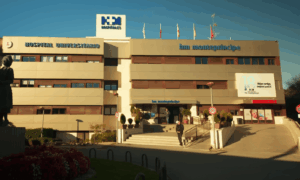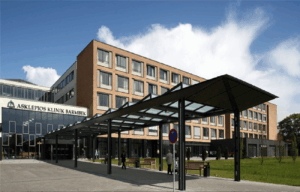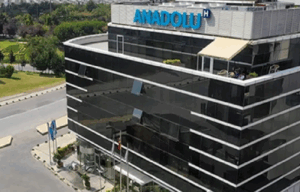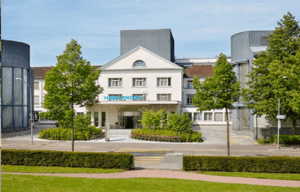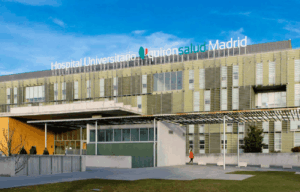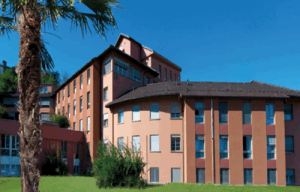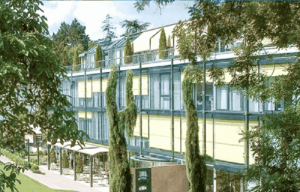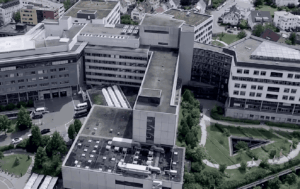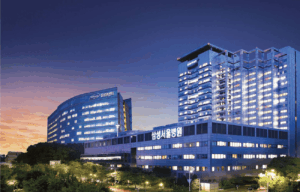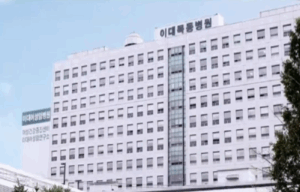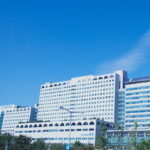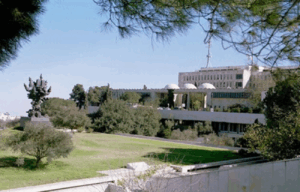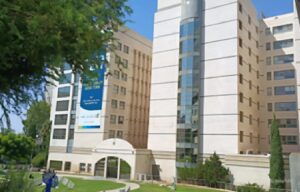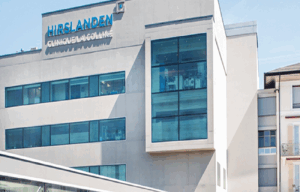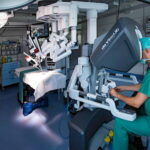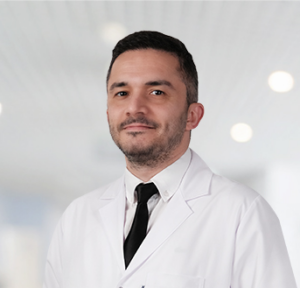Kidney cancer
Disease description
Kidney cancer is an oncological pathology that affects this vital paired organ responsible for urine formation. When a tumor develops, it disrupts not only the kidney’s function but also causes vascular damage, leading to chronic blood loss.
Malignant kidney tumors are diagnosed twice as often in men compared to women. The average age at diagnosis is 65 years.
When detected early, the five-year survival rate after treatment reaches 90%, primarily due to high-tech therapies available in leading global clinics.
Symptoms indicating the need for diagnosis and treatment
Kidney cancer is often asymptomatic in its early stages. As the disease progresses and nearby structures become involved or tissue compression occurs, the following symptoms may develop:
- Hematuria (blood in the urine) — may occur once or periodically, due to vascular damage
- Pain and discomfort in the lower back
- Renal colic (caused by ureteral blockage with a blood clot)
- Facial swelling
- Low-grade fever (up to 38°C)
In advanced stages, a common manifestation in men is varicocele (varicose veins of the spermatic cord).
Diagnosis and treatment methods
Diagnosis
To diagnose kidney cancer, the following procedures are used: ultrasound (US), excretory urography, radionuclide scanning, magnetic resonance imaging (MRI), computed tomography (CT), bone scintigraphy, core needle biopsy (trepanobiopsy).
Treatment
Conservative treatment is highly effective in the early stages, when the tumor responds well to reduction therapies. Leading urologists in global clinics apply the following methods:
- Cryoablation (cryodestruction)
- Radiofrequency ablation (RFA)
- Ultrasound thermocoagulation
- Chemoembolization
- Targeted therapy and immunotherapy
For surgical treatment, urology departments equipped with modern technology offer minimally invasive surgeries using the Da Vinci robotic system.
Innovations in leading clinics
Researchers at scientific institutes have proposed a retroperitoneal approach for kidney surgeries. The access point is located below the tenth rib and extends to the adjacent intercostal spaces. This approach minimizes tissue trauma during the access phase while preserving the advantages of open surgery.
Top clinics
-
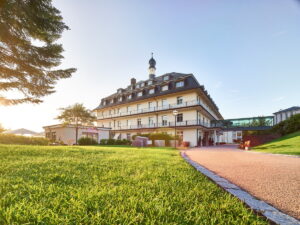 Baden-Baden, Germany Max Grundig Clinic
Baden-Baden, Germany Max Grundig Clinic -
 Istanbul, Turkey Acibadem Altunizade
Istanbul, Turkey Acibadem Altunizade -
 Istanbul, Turkey Medistate International Hospital
Istanbul, Turkey Medistate International Hospital -
 Istanbul, Turkey Acıbadem Ataşehir Clinic
Istanbul, Turkey Acıbadem Ataşehir Clinic -
 Antalya, Turkey Hospital Medical Park Antalya
Antalya, Turkey Hospital Medical Park Antalya -
 Dubai, UAE NMC Healthcare
Dubai, UAE NMC Healthcare -
 Istanbul, Turkey Hospital “Memorial Şişli”
Istanbul, Turkey Hospital “Memorial Şişli” -
 Milan, Italy San Donato Hospital in Milan, Italy
Milan, Italy San Donato Hospital in Milan, Italy -
 Milan, Italy San Raffaele University Hospital
Milan, Italy San Raffaele University Hospital -
 Abu Dhabi, UAE Burjeel Hospital Abu Dhabi
Abu Dhabi, UAE Burjeel Hospital Abu Dhabi -
 Vienna, Austria Debling Private Clinic
Vienna, Austria Debling Private Clinic -
 Vienna, Austria Confraternität Private Hospital
Vienna, Austria Confraternität Private Hospital -
 Heidelberg, Germany Heidelberg University Hospital
Heidelberg, Germany Heidelberg University Hospital -
 Hamburg, Germany Asklepios Nord Heidberg
Hamburg, Germany Asklepios Nord Heidberg -
 Dusseldorf, Germany FKKD Clinical Complex
Dusseldorf, Germany FKKD Clinical Complex -
 Winterthur, Switzerland Clinic "Lindberg"
Winterthur, Switzerland Clinic "Lindberg" -
 Incheon, South Korea Gil Medical Center at Gachon University
Incheon, South Korea Gil Medical Center at Gachon University -
 Lausanne, Switzerland Clinique Montchoisy
Lausanne, Switzerland Clinique Montchoisy -
 Nyon, Switzerland Clinique Genolier
Nyon, Switzerland Clinique Genolier -
 Istanbul, Turkey “Memorial Ataşehir” Clinic
Istanbul, Turkey “Memorial Ataşehir” Clinic -
 Bodrum, Turkey Acibadem Bodrum Hospital
Bodrum, Turkey Acibadem Bodrum Hospital -
 Barcelona, Spain QuironSalud Barcelona Hospital
Barcelona, Spain QuironSalud Barcelona Hospital -
 Barcelona, Spain Medical Center "Teknon"
Barcelona, Spain Medical Center "Teknon" -
 Barcelona, Spain University Hospital Barnaclinic+
Barcelona, Spain University Hospital Barnaclinic+ -
 Madrid, Spain University Hospital HM Monteprincipe
Madrid, Spain University Hospital HM Monteprincipe -
 Hamburg, Germany Asklepios Klinik Barmbek
Hamburg, Germany Asklepios Klinik Barmbek -
 Gebze, Turkey Anadolu Clinic
Gebze, Turkey Anadolu Clinic -
 Zurich, Switzerland Hirslanden Clinic
Zurich, Switzerland Hirslanden Clinic -
 Madrid, Spain Quiron Salud University Hospital
Madrid, Spain Quiron Salud University Hospital -
 Lugano, Switzerland Saint Anna Clinic
Lugano, Switzerland Saint Anna Clinic -
 Geneva, Switzerland Clinique des Grangettes
Geneva, Switzerland Clinique des Grangettes -
 Duesseldorf, Germany Oncological Center Dusseldorf
Duesseldorf, Germany Oncological Center Dusseldorf -
 Seoul, South Korea Samsung Medical Center
Seoul, South Korea Samsung Medical Center -
 Seoul, South Korea Medical Center at Ewha Womans University
Seoul, South Korea Medical Center at Ewha Womans University -
 SNUH
SNUH -
 Seoul, South Korea Asan Medical Center
Seoul, South Korea Asan Medical Center -
 Jerusalem, Israel Hadassah Medical Center
Jerusalem, Israel Hadassah Medical Center -
 Petah Tikva, Israel Medical Center “Rabin”
Petah Tikva, Israel Medical Center “Rabin” -
 Geneva, Switzerland Hirslanden Clinique La Colline
Geneva, Switzerland Hirslanden Clinique La Colline -
 Geneva, Switzerland Generale-Beaulieu
Geneva, Switzerland Generale-Beaulieu -
 Vienna, Austria Private clinic "Rudolfinerhaus"
Vienna, Austria Private clinic "Rudolfinerhaus" -
 Dubai, UAE American Hospital Dubai
Dubai, UAE American Hospital Dubai -
 Oberhausen, Germany Clinic “Oberhausen” of the “Niederrhein” complex
Oberhausen, Germany Clinic “Oberhausen” of the “Niederrhein” complex -
 Freiburg, Germany University Hospital of Freiburg
Freiburg, Germany University Hospital of Freiburg -
 Berlin, Germany Charité Clinic
Berlin, Germany Charité Clinic -
 Munich, Germany University Hospital of Munich (Ludwig-Maximilians-Universität)
Munich, Germany University Hospital of Munich (Ludwig-Maximilians-Universität) -
 Vienna, Austria Wiener Privatklinik (WPK)
Vienna, Austria Wiener Privatklinik (WPK) -
 Zurich, Switzerland Bethanien Clinic
Zurich, Switzerland Bethanien Clinic
